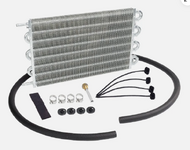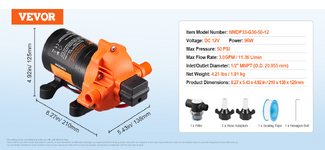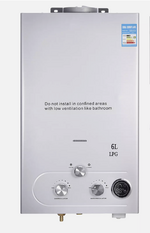seayaker
Industrial
- Jan 29, 2009
- 31
I'm exploring the possibility of making a radiant floor heating system for a RV or van with a propane tankless water heater. I've been using a 12 liter per min. heater in a RV for years and am very happy with it. I just wonder how efficient it would be if I got a water pump and some pex tubing and made a closed system. The heater seems to be very efficient for my hot water so I just wonder if it would be worth while to make a heat system. I like the idea of having the heater outside where no fumes would get in and pump the hot water through the tubing. Any thoughts on how efficient it could be. I'm not at the point to do mathematical calculations just looking for a semi educated guess.



